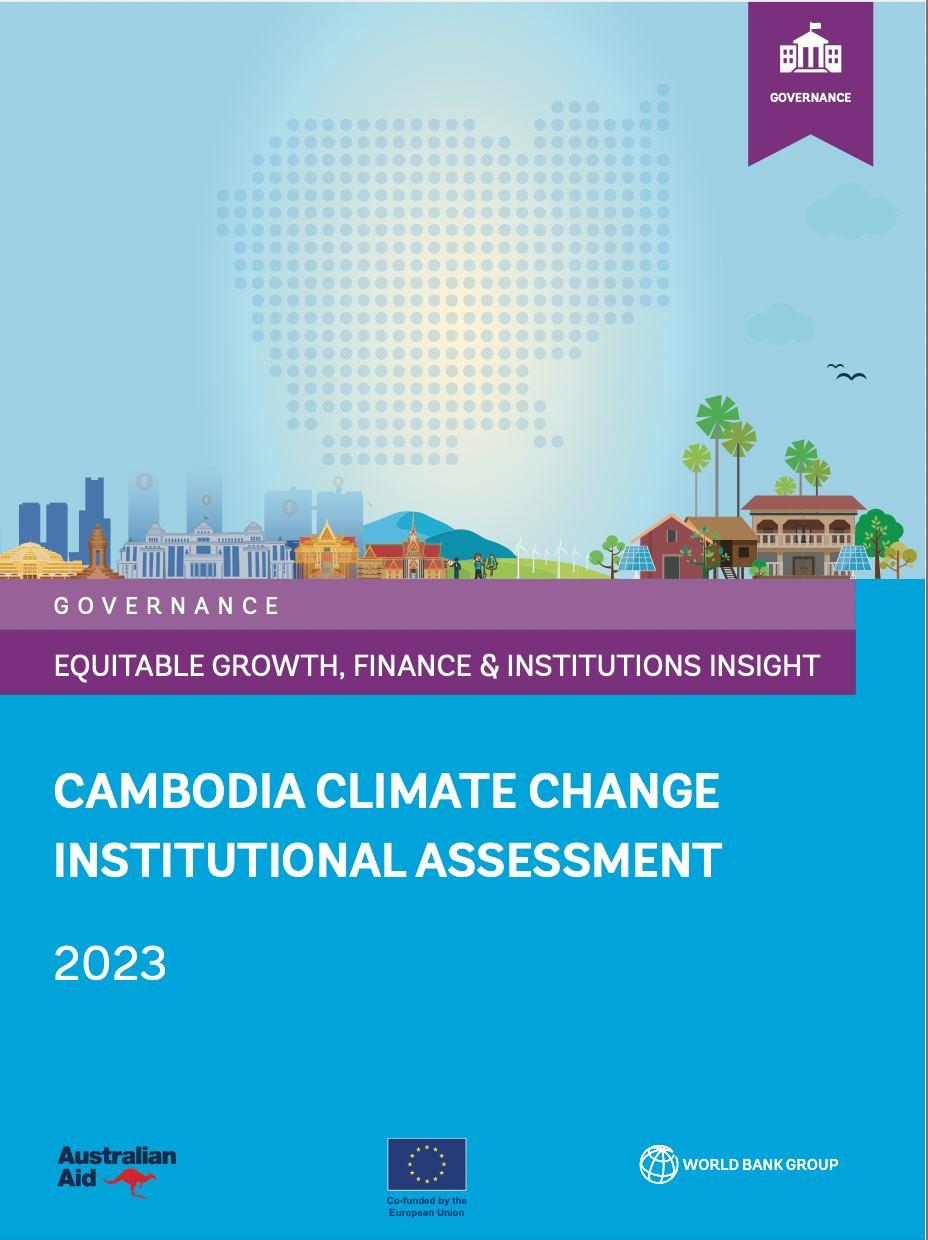PHNOM PENH, May. 10 (World Bank) — Climate change presents significant challenges to the country’s development trajectory and economic growth as Cambodia is susceptible to extreme weather-related shocks and rising temperature, threatening its agricultural industry and the livelihood of vulnerable populations. In order to address these risks, Cambodia ratified the Paris Climate Agreement of the United Nations Framework Convention on Climate Change (UNFCCC) and submitted its Nationally Determined Contribution (NDC) and Long-term Strategy for Carbon Neutrality (LTS4CN), presenting ambitious roadmaps to reduced greenhouse gas emissions by 2030 and achieve carbon neutrality by 2050. The Cambodia Climate Change Institutional Assessment (CCIA) provides an analysis of the strengths and weaknesses of governing agencies that are key to mitigation and adaptation actions. It identifies four binding constraints: institutional capacity challenges; multi-dimensionality of climate change is underappreciated; disharmonious planning and regulatory policies; and lack of demand-side and accountability pressures.
Read in full at https://documents1.worldbank.org/curated/en/099042424065022002/pdf/P1684071392e0e0e11ba9c1059b12a69030.pdf
